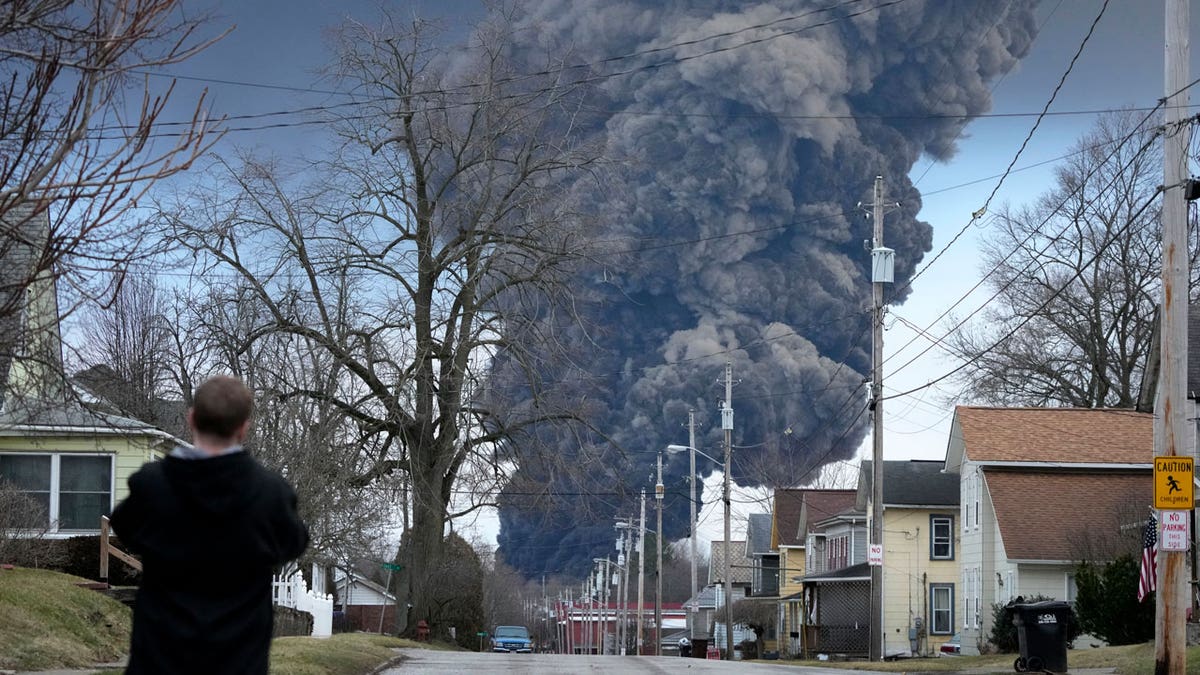Marc Thiessen: This is not a good look for Pete Buttigieg's political future
All-star panelists Marc Thiessen, Stef Knight and Douglas Heye evaluate Transportation Secretary Pete Buttigieg's response to the Ohio train derailment on 'Special Report.'
Transportation Secretary Pete Buttigieg shifted part of the blame for the recent derailment of a train carrying toxic chemicals in Ohio on the Trump administration reversing a little-known safety rule.
Buttigieg noted Tuesday evening that his agency had taken a series of steps to improve rail safety through "historic investments," but said it was constrained by the Trump administration action. In 2018, the Department of Transportation (DOT) withdrew a rule proposed three years earlier requiring trains carrying certain dangerous chemicals to utilize electronically controlled pneumatic (ECP) brakes, saying the technology's benefits were inconclusive.
"In the wake of the East Palestine derailment and its impact on hundreds of residents, we’re seeing lots of newfound or renewed (and welcome) interest in our work on rail safety, so I wanted to share more about what we’ve been doing in this area," Buttigieg tweeted.
"We’re constrained by law on some areas of rail regulation (like the braking rule withdrawn by the Trump administration in 2018 because of a law passed by Congress in 2015), but we are using the powers we do have to keep people safe," the transportation secretary added. "And of course, I’m always ready to work with Congress on furthering (or in some cases, restoring) our capacity to address rail safety issues."

President Biden, left, selected Pete Buttigieg to lead the Department of Transportation early in his presidency. ( Chip Somodevilla/Getty Images)
On Feb. 3, a train carrying vinyl chloride, a dangerous colorless gas, and operated by the transportation company Norfolk Southern Railroad derailed in Columbiana County, Ohio, which is located along the Ohio-Pennsylvania border.
PETE BUTTIGIEG OFTEN FLIES ON TAXPAYER-FUNDED PRIVATE JETS, FLIGHT DATA SHOW
Shortly after the derailment, Norfolk Southern opted to release the gas from the derailed cars, potentially releasing deadly fumes into the air, to prevent a potentially disastrous explosion. Local residents were told to evacuate the area, but assured it was safe to return on Feb. 9.
The Environmental Protection Agency, Norfolk Southern and Ohio officials have conducted air monitoring in the eastern Ohio region and said the tests have shown the air is safe to breathe. However, locals and experts have expressed concern that it is dangerous to return to the area.

People living near the site of an Ohio train derailment that resulted in the controlled release of toxic chemicals fear returning home. (AP Photo/Gene J. Puskar)
"The railroad company is responsible for this and for these people who went back to their homes," Sil Caggiano, a local hazardous materials specialist, told Fox News on Tuesday. "Their homes should have been tested. Their homes should have been cleaned. From the onset, these people were being marginalized in an effort to mitigate this."
"This really looks like a nuclear winter," he added. "Pretty much, yeah, we nuked this town with chemicals."
Buttigieg, meanwhile, has been blasted for his slow response to the derailment. He waited 10 days to address the situation, promising to "use all relevant authorities to ensure accountability and continue to support safety."
The Trump administration rule change Buttigieg partially blamed came after Congress passed and former President Barack Obama signed the Fixing America's Surface Transportation Act in December 2015.
The legislation established a new process, including independent study and testing, for the DOT to use in developing an updated regulatory impact analysis (RIA) related to the ECP brake provision, according to the Government Publishing Office. The DOT stated in 2018 that the ECP brake requirements weren't expected to be cost beneficial under any scenario assessed.
CLICK HERE TO GET THE FOX NEWS APP
"When [the National Transportation Safety Board] completes its investigation of the cause of the derailment, which is still being investigated, [the Federal Railroad Administration] and [the Pipeline and Hazardous Materials Safety Administration] will look to the investigation results and use all relevant authorities to ensure accountability and improve safety," a DOT spokesperson told Fox News Digital on Wednesday.
"On the rule, in 2015, Republicans in the House and Senate required a cost-benefit analysis that allowed for the Trump administration to repeal the rule in 2017 and now makes it challenging to reinstate the rule in its previous configuration — due to threats of litigation and opposition in Congress," the statement continued.
"After the 2015 rule was issued, the rule including the RIA was challenged in 5 different Federal Circuits, and Congress quickly moved to vitiate the rule, making it more difficult under the Administrative Procedure Act to revisit the basis for advancing a rule. However, pending the results of the investigation into the derailment, FRA and PHMSA will evaluate action to prevent this from happening again."















































